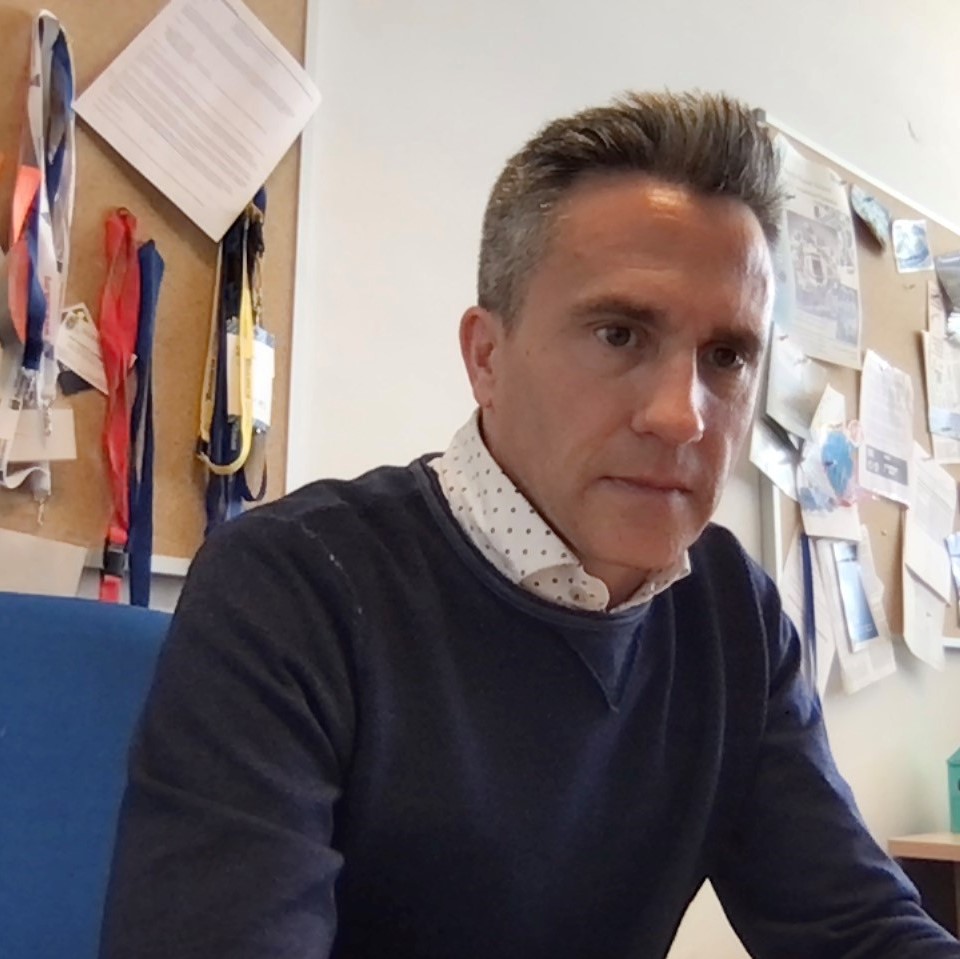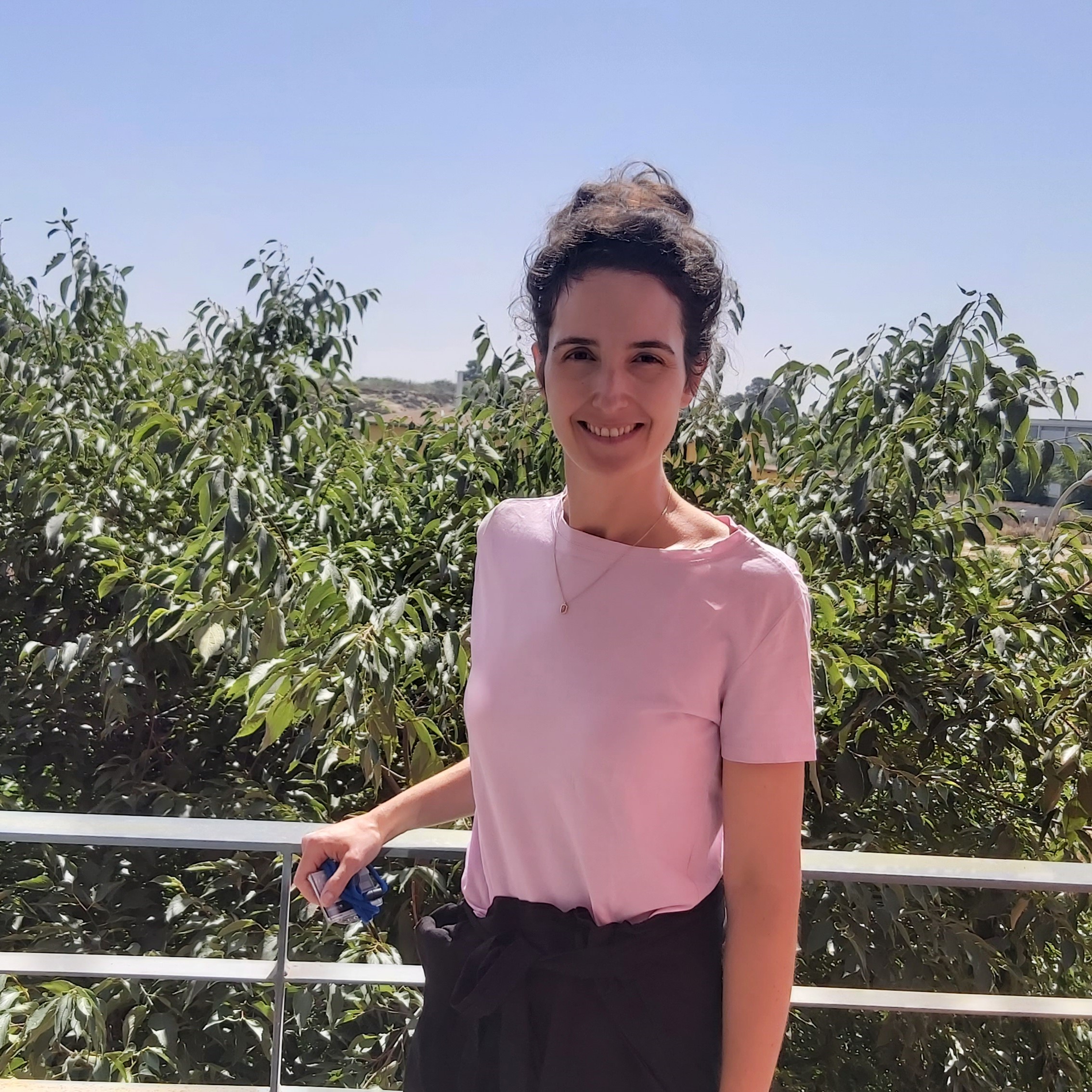
Why did you decide to go into research?
In my case it was by accident. My thesis director Pedro Muro told me so enthusiastically that he was doing research that I said, why not try it? And since then I haven't thought about leaving. As I said, it was an accident, but a blessed accident.
You are part of DisCo, what do you work on in your research group?
In DisCo we are mainly dedicated to the study and analysis of the behavior of systems from different perspectives and the design of technological infrastructures that favor these analysis tasks. Some of the researchers focus their interest on early design stages of these systems and others more on their operation and execution. We cover a wide spectrum of application domains such as, for example, security of information systems and critical infrastructures, business analytics, knowledge extraction from social networks, health and welfare, and even sports.
In my particular case, the last few years I have been more involved in advancing scientifically around the application of artificial intelligence techniques to problems related to the emotions experienced by users, focusing on the context of leisure, health and sport. These types of problems are data and computation intensive and require large-scale solutions, where I have been able to contribute my experience as a distributed systems architect.
Tell us about a project you have underway...
One of the last ones we have been awarded is related to cardiac rehabilitation issues. We are working with the University of Santiago de Compostela and several hospitals in that city. The objective is to try to automate certain aspects of cardiac rehabilitation processes in order to accompany patients during their recovery period. In our particular case, we are especially interested in working on the emotional and emotional dimension.
Let me explain, if someone has undergone surgery for a heart condition, they usually have between six months and a year of rehabilitation. Ideally, these people should go to the hospital three or four days a week to complete different activities and lead a healthy life, but in Galicia, the population is scattered in villages, so at first they go, but then they leave rehabilitation.
They gave us a project to look for alternatives to that kind of scenario. We from the I3A developed an emotional technology through a bracelet worn by the patient that allows us to capture physiological information. Through it, we detect episodes of stress, depression and everything that can affect them in an undesirable way in their rehabilitation process. These patients also go to the psychologist, but ideally, instead of interrogating the patient, the psychologist would have "real time" information on each patient. So these bracelets capture data and through artificial intelligence we aim to deduce certain patterns of emotional behavior.
Could this technology be applied to other patients?
In principle the technology could be applied in other similar scenarios, obviously. Let's say that, if you remove the problem, what you have is an artificial intelligence system and a series of physiological devices that capture information and produce a mood map. Then you can take advantage of it as you wish. For example, it can be applied to athletes who run long distances to improve performance. You have your emotional map of what has happened during the whole training and you can correlate it with what exercises you have done at each moment to draw conclusions on what to improve.
Colud we see this in hospitals?
As of today, we have funding for two years to explore possible solutions with the hospitals in Santiago and, if the results are satisfactory, then we will look for funding so that it can go into a product and we can sell it to other hospitals. We would be looking at a minimum of three or four years.
The great thing about our work is that, if you have ambition, if you are willing to work, every day is a different adventure.
Going back to your involvement with the I3A, how long have you been with the Institute?
Probably since it was founded. Before creating DisCo I was at IAAA, another research group here at I3A.
What would you highlight about the Institute?
For our group, it provides us with the computing infrastructure that is very important for our daily work. Also all the management part that frees up a lot of time. We miss the part of collaboration between research groups of the institute itself, but it is not only a problem of the institute, it is also ours. In the end, the I3A is like an archipelago with many islands, many research groups and it is very complicated to collaborate with other groups. But as I say, there is a lot of merit in managing this large archipelago.
What do you like most about your job?
I have the best job in the world and I am happy coming to work. That has an incalculable price. In the end, when you go into research, the limits of what you can do are in your own imagination and that's amazing. I've had opportunities to go to work for private companies, but I've never considered it. The cool part of our job is that, if you have ambition, if you have the desire to work, every day is a different adventure. It also gives you the freedom to choose what you want to work on, what you want to research. If you see something else that interests you more, nobody forces you to stay, you can change. I wake up every day being happy saying I'm going to work and that is not paid.
And what less?
The bad thing, I don't know, I guess in the end, research in this country is very depreciated. At the governmental level there is not as much support as there should be, there is no such culture. Also, companies still find it difficult to collaborate with universities, with a few exceptions. Sometimes we have difficulty to work and it is not a question of investment, that obvious, but it is also a cultural part. When they ask you in what do YouTube work, they say, "Really? You are wasting your time".
In other countries the respect with which they treat you for working at the university, for having a doctorate, for researching... here that is missing.
What would you say to someone who is thinking of going into research?
That they will have the best job in the world. As I was saying, Pedro Muro was my thesis director and he was a brilliant mind, these people who see things beyond, and one day he told me that I was not going to find a better job than this. And that illusion and enthusiasm with which he spoke to me was what seduced me at that moment and also what keeps me here. And what I try to transmit to the people who start working with me is that here they will grow at all levels; as an engineer, in terms of innovation, on a personal level... You don't earn as much as in a private company, but the level of creativity is much higher here. I think it's a question of priorities and what I try to instill is what was instilled in me.
CLOSE UP...
Favorite book: I love history books. When I retire I always say I will enroll in a History Degree. I like all historical novels or history books in general, it's my passion.
Movie: Untouchables.
What do you do in your free time: I am a sports fanatic. I've played indoor soccer and I currently coach the Aragonese U16 women's team. I also run marathons, mountain races... When I'm not working, I'm playing sports.
Travel: Burma. I really like Asia.
Pending trip: Canada.
Favorite place: I love getting lost in the mountains.
A dream: Many, I'm still very young. Both personal and professional.
How would you define yourself: I am very persevering. This is something that the sport of competition has instilled in me, to try until the end. I am also very restless, I always have to be doing things and thinking about something.
